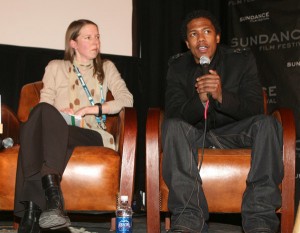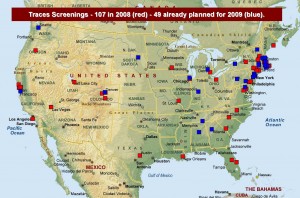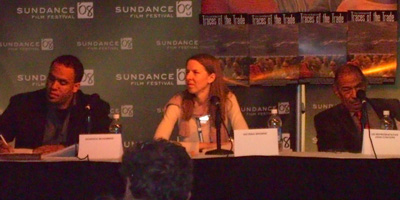
My cousin Katrina, who directed Traces of the Trade, was on a panel at Sundance this afternoon on filmmaking and being “Black in America.”
The panel was hosted by film critic Elvis Mitchell, who collaborated on The Black List, now playing at Sundance, and also included actor and filmmaker Danny Glover; Melody Barnes, who works in policy on Capitol Hill; actor, musician, and comedian Nick Cannon, starring in this year’s American Son; and Orlando Bagwell, the documentary filmmaker who hosted our panel on public outreach yesterday.
The panel was an engaging, wide-ranging, and often entertaining exploration of a variety of serious issues confronting black filmmakers and those interested in making films about the black experience in the U.S.
Click here to read the rest of this entry





